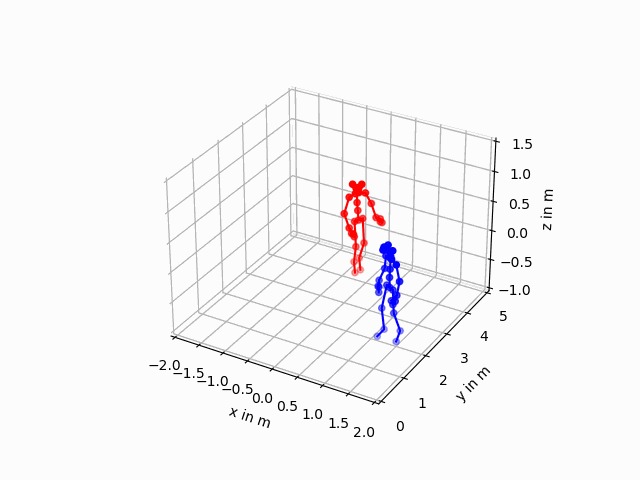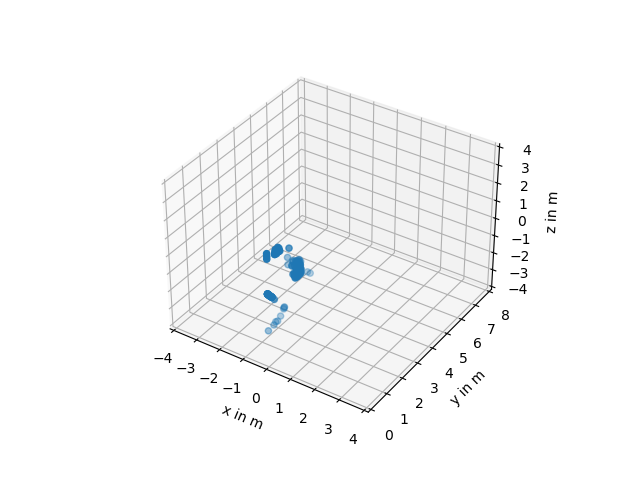MA: People Counting Using Radar Point Clouds
Task description:
Smart home applications are increasingly finding their way into the everyday lives of many people. Audio and camera systems have already established voice and gesture control in some households. However, the audiovisual sensor technology is a relatively strong intrusion into people’s privacy. Radar sensors offer a decisive advantage in this respect. Since the data do not have any immediately recognizable personal reference. For both private and public buildings, radar sensors therefore offer many attractive possibilities for performing tasks, which involve human behavior, even with high data protection requirements. They can be used, for example, to detect people in the room to enable more intelligent control of ventilation and lighting.
In recent month, a measurement box has been developed at the Institute of Microwaves and Photonics (LHFT) to record synchronized raw radar data and RGBD images. The RGBD images serve as the ground truth and, therefore, for an automated labeling process of the radar data in this investigation. This thesis focuses on analyzing the number of people within a room using point clouds extracted from raw radar data by the development of robust machine learning (ML) methodologies.
To achieve this goal, a thorough review of the literature is imperative to grasp the state-of-the-art ML techniques tailored for extracting people counting from radar data. Measurements are conducted to acquire a foundational dataset for ML training. Subsequently, various ML approaches are developed and accurately evaluated. A key aspect of this thesis is the careful consideration of the variation in the number of people in the room over time. Finally, the accuracy of the ML approaches is compared to ground truth, providing valuable insights into the efficacy of this novel approach.


Supervisors: Prof. Dr.-Ing. Martin Vossiek, Lukas Engel, M.Sc.
Date of issue: April 2024